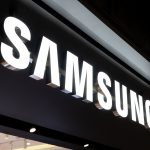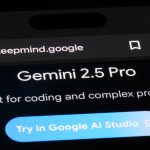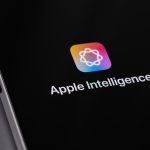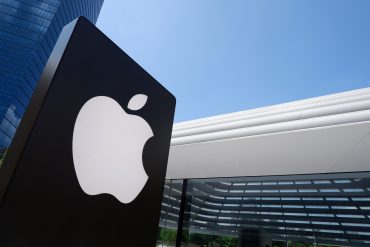
- Artificial Intelligence
- Big Tech
- Voice Assistants
Apple in Talks with Google to Power Next-Generation Siri
6 minute read

Google Gemini technology emerges as frontrunner to power Apple’s ambitious Siri overhaul launching in 2026
Key Takeaways
- Apple explores Google partnership for AI-powered Siri – The iPhone maker holds early discussions with Google to use Gemini technology for a revamped voice assistant launching in 2026, marking a strategic shift toward external AI partnerships.
- Internal competition between two Siri versions – Apple develops both an in-house “Linwood” model and external “Glenwood” version in a corporate “bake-off” to determine the best approach, with no final decision expected for several weeks.
- Privacy-focused cloud integration planned – Google trains a custom Gemini model designed to run on Apple’s Private Cloud Compute servers, preserving Apple’s security standards while accessing advanced AI capabilities.
Introduction
Apple explores a partnership with Google to power its next-generation Siri assistant, signaling a dramatic shift in the company’s AI strategy. The iPhone maker holds early discussions with Alphabet’s Google about using Gemini technology for a revamped voice assistant, according to Bloomberg.
This potential collaboration represents Apple’s pragmatic response to falling behind in the generative AI race. The company previously approached OpenAI and Anthropic for similar partnerships as consumer expectations for intelligent assistants continue rising.
The discussions highlight how even direct competitors collaborate on advanced AI development. Apple seeks to accelerate its AI capabilities while maintaining its privacy-focused approach through custom server infrastructure.
Key Developments
Apple develops two parallel versions of its next-generation Siri in an internal competition. The company codes one version “Linwood” using proprietary models and another “Glenwood” powered by external technology.
Google trains a specialized Gemini model designed to operate on Apple’s private cloud servers. This arrangement preserves Apple’s security standards while accessing Google’s advanced AI capabilities developed for Android and Samsung devices.
The partnership discussions follow Apple’s 2024 announcement of an all-new Siri experience. Leadership changes and technical roadblocks delayed the original launch timeline, pushing the revamped assistant to spring 2026.
Apple simultaneously tests its first trillion-parameter model internally. This represents a significant upgrade from the company’s current 150 billion parameter models running on Apple servers today.
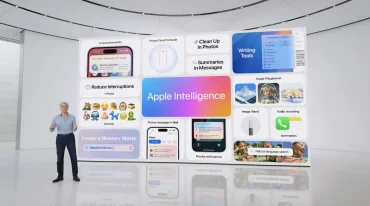
Market Impact
The potential partnership creates new revenue opportunities for both companies. Google gains access to Apple’s massive user base while Apple accelerates its AI development timeline without extensive internal investment.
Industry analysts view the discussions positively for both firms. The arrangement allows Apple to maintain its premium market position while Google expands its AI platform reach beyond Android devices.
Cost considerations influence Apple’s partnership strategy. The company’s initial preference for Anthropic faced obstacles due to high licensing fees, prompting exploration of more financially viable alternatives.
Strategic Insights
Apple’s external partnership approach reflects broader industry trends toward collaborative AI development. Leading technology firms increasingly work with competitors to accelerate innovation and deployment timelines.
The modular AI architecture provides strategic flexibility for Apple. The company can pivot between internal and external solutions based on performance metrics, cost analysis, and competitive positioning.
Privacy-centric AI deployment emerges as a differentiating factor. Apple’s insistence on running third-party AI through its Private Cloud Compute infrastructure may establish new industry standards as regulatory scrutiny intensifies.
The partnership negotiations underscore Apple’s urgent need to catch up in generative AI. The company arrived late to the market and struggles to match rapid advances by Google and OpenAI in consumer-facing applications.

Expert Opinions and Data
Bloomberg editor and Apple insider Mark Gurman reports that Apple explores partnerships with its most direct smartphone competitor. The collaboration discussions represent a significant strategic shift from Apple’s traditional self-reliance on proprietary technology.
Industry analysts express mixed reactions to the potential partnership. Many praise the pragmatic approach given Apple’s AI development lag, while others question whether external dependence could weaken ecosystem control or brand differentiation.
Technology community responses vary between support for modular innovation and concerns about increased Google dependency. Some observers worry about possible erosion of Apple’s integrated product philosophy.
Consumer expectations drive the partnership considerations. Users increasingly demand intelligent assistants that match or exceed capabilities offered by Google Assistant and ChatGPT across competing platforms.
Conclusion
Apple’s exploration of Google Gemini integration represents a pivotal moment in corporate AI strategy. The discussions balance development speed, cost efficiency, privacy protection, and competitive differentiation in a rapidly evolving technology landscape.
The company’s dual-track approach allows strategic flexibility while addressing urgent market pressures. Apple positions itself to deliver competitive AI capabilities regardless of whether internal or external solutions prove superior.
This partnership consideration demonstrates how advanced AI development transcends traditional competitive boundaries. The outcome will significantly influence both companies’ positions in the next generation of consumer technology experiences.

